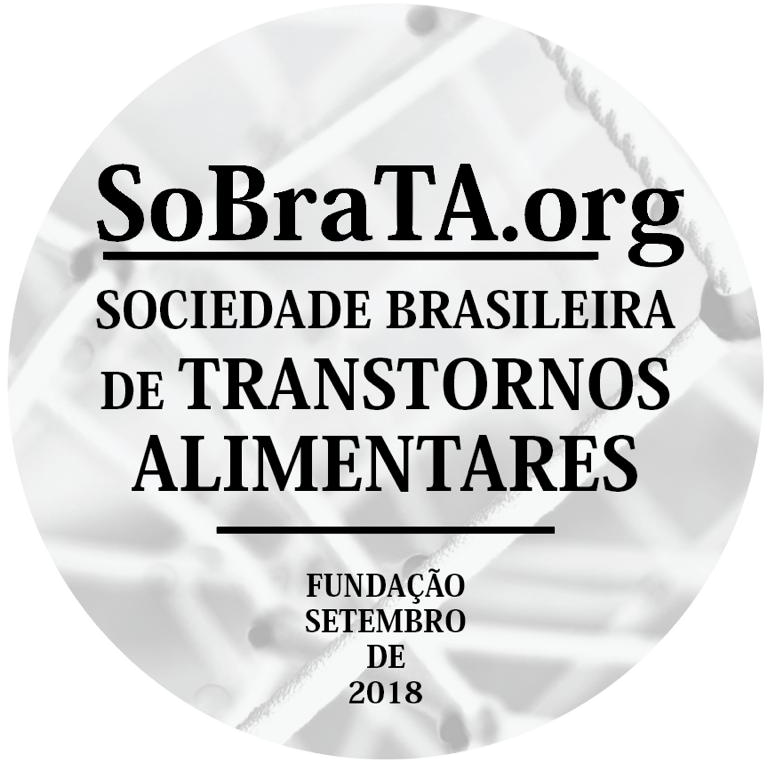PÔSTER DIGITAL |
FAÇA SUA INSCRIÇÃO
III CONGRESSO BRASILEIRO
DE TRANSTORNOS ALIMENTARES
- 23 e 24 de junho de 2023 -


A
PREVALÊNCIA DA ANSIEDADE SEGUIDA DE GANHO PONDERAL EM MULHERES
ATENDIDAS PELO PROJETO CAURJ EM FORMA, DA CAIXA ASSISTENCIAL DA UFRJ,
NO PERÍODO PANDÊMICO.
Tatiana Ossola Simões
RESUMO: O período da pandemia de Covid-19 causou diversos danos
psicossociais. A ansiedade, em seus diferentes graus, foi especialmente
observada em mulheres, com consequente aumento de peso. Casuisticamente
se tornando mais um desafio para tratamento da obesidade, que por si
só, é uma grande preocupação em saúde pública. O objetivo desse artigo
foi fazer um levantamento quantitativo e exploratório de mulheres em
relação à homens, acometidas por ansiedade auto percebidas, com
consequente maior ingesta de alimentos hipercalóricos e ganho de peso;
questionando a hipótese de desregulação do neurotransmissor dopamina.
Foram pesquisados 28 pacientes atendidos no programa CAURJ EM FORMA, da
Caixa Assistencial da UFRJ, no período de agosto a outubro de 2022,
através de formulários pré preenchidos e anamnese nutricional. As
médias foram 52,31 anos de idade (>19; <77 anos), IMC médio de
30,35kg/m2 (>19,7; <47 kg/m2), sendo 85,7% do sexo feminino e
14,3% do sexo masculino. Um total de 50,4% relatou aumento da compulsão
alimentar com respectivo ganho ponderal devido a
ansiedade.Conclusivamente observamos uma real disparidade em mulheres,
comparadas a quantidade de homens, que não só quiseram participar do
programa como relataram ansiedade, aumento da compulsão alimentar e
consequentemente de peso; demonstrando a necessidade de mais estudos
específicos da neuroquímica da dopamina nos casos de obesidade pós
pandêmica.
Palavras chave: obesidade em mulheres, compulsão alimentar, ansiedade, pandemia, dopamina . Abstract:
The period of the Covid-19 pandemic caused several psychosocial damage.
Anxiety, in its different degrees, was especially observed in women,
with consequent weight gain. Casuistically becoming more of a challenge
for the treatment of obesity, which in itself is a major public health
concern. The objective of this article was to make a quantitative and
exploratory survey of women in relation to men, affected by
self-perceived anxiety, with consequent greater intake of hypercaloric
foods and weight gain; questioning the hypothesis of deregulation of
the neurotransmitter dopamine. Twenty-eight patients assisted in the
CAURJ EM FORMA program, from the Caixa Assistencial da UFRJ, from
August to October 2022, were surveyed through pre-filled forms and
nutritional anamnesis. The averages were 52.31 years old (>19;
<77 years), mean BMI of 30.35kg/m2 (>19.7; <47 kg/m2), 85.7%
female and 14, 3% male. A total of 50.4% reported increased binge
eating with associated weight gain due to anxiety. Conclusively, we
observed a real disparity in women, compared to the number of men, who
not only wanted to participate in the program but also reported
anxiety, increased binge eating and consequently weight; demonstrating
the need for more specific studies of the neurochemistry of dopamine in
cases of post-pandemic obesity.
Keywords: obesity in women, binge eating, anxiety, pandemic, dopamine |
+ PÔSTERES
 |
 |
 |
- Página do Associado -
- Biblioteca Virtual -
- Candidate-se a Associado -
- Página inicial -
S o B r a T A
WhatsApp (21)99574-6789